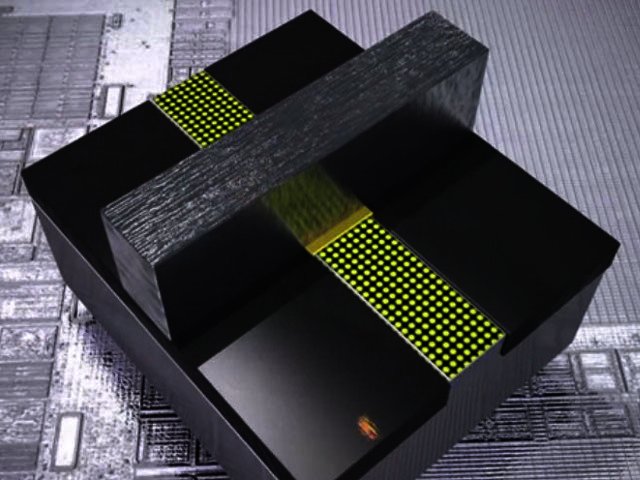PREVIOUS ARTICLENEXT ARTICLE
NEWS

3D transistors coming to Intel chips
By Johan Keyter 5 May 2011 | Categories: news
Intel announced yesterday that it will be implementing advanced new chip manufacturing technology to implement three-dimensional transistors on its latest chips.
The new technology will allow the chip giant to create PCs, smartphones and tablets that are faster and more power-efficient than its predecessors.
The new technology, called tri-gate transistors, will replace the flat 2D streams of transistors with a 3D structure, according to Mark Bohr, an Intel senior fellow. Just as humans build skycrapers upwards to save on room, building chips upwards will have the same effect, helping to add more transistors while maintaining a compact size, Bohr said.
He also stated that the new technology will enable them to manufacture faster, smaller and more power-efficient transistors, and that the benefits of this technology will be felt from the largest server to the smartphone in your pocket (as long as they include Intel chips that is).
The new 3D chips will be implemented when creating chips using Intel's advanced 22 nanometer (nm) manufacturing process. “We have to continually innovate new material and structures, with 22 nm, this is the new structure,” said Bohr.
The so-called tri-gate transistors are said to be up to 37% faster than chips created using Intel's current 32 nm manufacturing process and will consume half the power of current chips.
According to PCWorld, the new technology could help Intel in catching up to chip makers using ARM chips, with the popular ARM processors being used in many tablets and smartphones today thanks to its power-efficient nature. Executive vice president of Intel Architecture Group, Dadi Perlmutter, said that the new technology will especially be seen on Intel's future Atom processors for tablets, netbooks and smartphones.
The first chips to use the 22 nm process will be new Intel Core chips built on the microarchitecture known as Ivy Bridge (the future successor to today's Sandy Bridge). According to Intel, the 22 nm manufacturing process allows more than six million 22 nm Tri-Gate transistors to fit in the period at the end of this sentence.
The new technology, called tri-gate transistors, will replace the flat 2D streams of transistors with a 3D structure, according to Mark Bohr, an Intel senior fellow. Just as humans build skycrapers upwards to save on room, building chips upwards will have the same effect, helping to add more transistors while maintaining a compact size, Bohr said.
He also stated that the new technology will enable them to manufacture faster, smaller and more power-efficient transistors, and that the benefits of this technology will be felt from the largest server to the smartphone in your pocket (as long as they include Intel chips that is).
The new 3D chips will be implemented when creating chips using Intel's advanced 22 nanometer (nm) manufacturing process. “We have to continually innovate new material and structures, with 22 nm, this is the new structure,” said Bohr.
The so-called tri-gate transistors are said to be up to 37% faster than chips created using Intel's current 32 nm manufacturing process and will consume half the power of current chips.
According to PCWorld, the new technology could help Intel in catching up to chip makers using ARM chips, with the popular ARM processors being used in many tablets and smartphones today thanks to its power-efficient nature. Executive vice president of Intel Architecture Group, Dadi Perlmutter, said that the new technology will especially be seen on Intel's future Atom processors for tablets, netbooks and smartphones.
The first chips to use the 22 nm process will be new Intel Core chips built on the microarchitecture known as Ivy Bridge (the future successor to today's Sandy Bridge). According to Intel, the 22 nm manufacturing process allows more than six million 22 nm Tri-Gate transistors to fit in the period at the end of this sentence.
USER COMMENTS
Most Read Articles
Read

Magazine Online
TechSmart.co.za is South Africa's leading magazine for tech product reviews, tech news, videos, tech specs and gadgets.
Start reading now >
Download latest issue
Have Your Say
What new tech or developments are you most anticipating this year?
New smartphone announcements (45 votes)
Technological breakthroughs (29 votes)
Launch of new consoles, or notebooks (14 votes)
Innovative Artificial Intelligence solutions (29 votes)
Biotechnology or medical advancements (24 votes)
Better business applications (160 votes)



